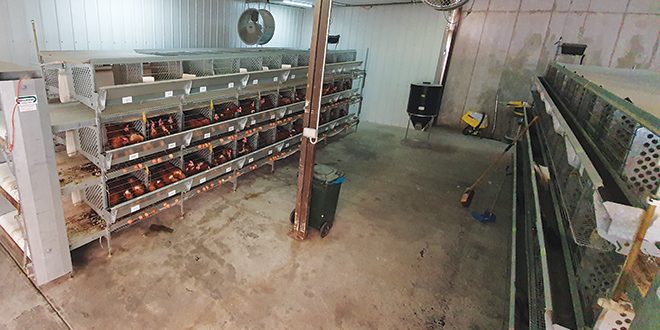Spotty liver disease is an infectious disease caused by the relatively recently identified bacterium campylobacter hepaticus. It has been increasing in prevalence in Australian egg-laying flocks due to an increase in birds farmed extensively, including free range and barn systems, where the chances of faecal-oral transmission of C hepaticus are increased. The only way to control spotty liver disease outbreaks nowadays is with the use of antibiotics.
The current field evaluation of autogenous vaccines is continuing, with mixed results. Intensive animal production in Australia and the world are constantly aiming to reduce the usage of antimicrobials.
In a recent manuscript, jointly published by Scolexia and RMIT University in Poultry Science, a plant extract containing isoquinoline alkaloids was tested against an oral challenge of C hepaticus. Results showed a significant reduction in the amount of liver lesions found in the treated hens compared to the controls – untreated and challenged with C hepaticus.
The treatment also prevented a significant drop in egg mass that has been previously seen to be induced by C hepaticus one week after challenge. Egg production was also improved in those hens treated with the alkaloid compared with untreated and challenged hens.
Finally, the expression of the inflammatory cytokine interleukin-8 was reduced in the treated hens compared with the positive controls. That reduction in this marker could be related with a reduction in the inflammatory response and liver damage.
In conclusion, the preventive use of isoquinoline alkaloids in the diet of free range egg laying hens may offer an aid in reducing the negative effects produced by a challenge with C hepaticus, reducing productivity losses associated with spotty liver disease.
Dr Jose A Quinteros
Scolexia Animal and Avian Health Consultancy

